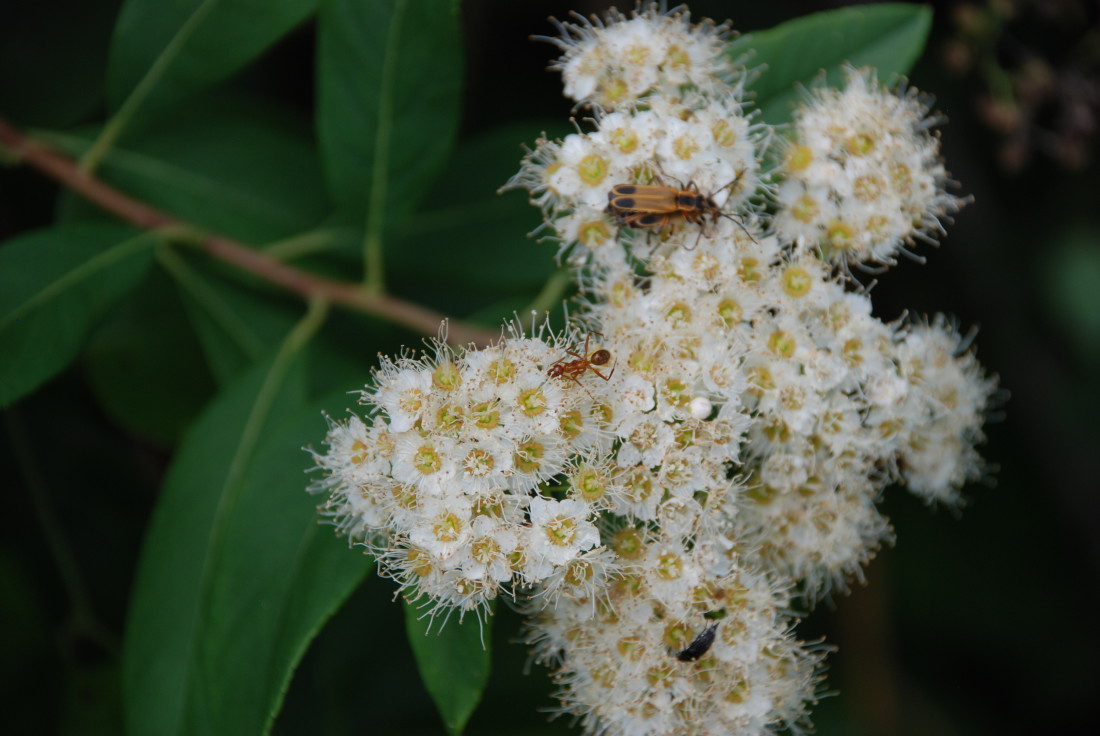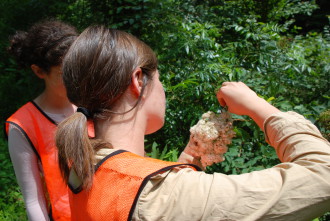By Lillian Mercho
A honeybee’s sense of smell is so precise that it can differentiate among hundreds of floral varieties and tell whether a flower carries pollen or nectar from many yards away. This season, UNC Asheville is doing its part to protect these and other important pollinators by planting several new native pollinator meadows throughout the campus.
“Our pollinators and bees are really imperiled,” says Melissa Acker, landscape director at UNCA. “We’ve done several other pollinator gardens before that were much smaller, but the available funds that we have from the grants that we received will truly help us better meet the needs of the pollinators.”
The meadows have been funded by the Burt’s Bees Greater Good Foundation and the Blue Ridge National Heritage Area Partnership. The project also received grants from Bee City USA, which was started in 2012 by Phyllis Stiles, Bee City USA founder and director of foundation relations for UNCA.
“We’ve started working on several spots on campus, but the primary ones that will be the focus will be a dry meadow and a wet meadow on the school’s main entrance drive,” Acker says. The accessibility of these meadows will, hopefully, draw attention to the project and spread the word about the importance of pollinators in the community, she adds.
The meadows will be used for instructional purposes, allowing students to photograph and document bee activity and identify pollinators. The research gathered will inform UNCA as well as the surrounding community of which native and cultivar plant species are best at attracting native and non-native pollinators. After all, more pollinators make for better ecosystems, which in turn will lead to more food.
“Our role will be primarily to monitor the species that visit the plants over the active flowering period — summer plus early fall,” says Jennifer Rhode Ward, associate professor of biology at UNCA. “We hope that, by observing the insects’ behaviors and the plants’ responses, we will be able to determine which species are just visiting to rob nectar or pollen and which are actually pollinating.”
The research obtained from such observations will be put to good use. Using the meadows as a showcase, this fall UNCA will host a workshop for colleges and other institutional campuses across the region to explore ways to use their landscapes to better sustain pollinators, including bees, butterflies, hummingbirds and other species facing steep declines over recent decades.
The pollinator garden project won’t stop there. Students and faculty are exploring the idea of creating pollinator meadows under nearby electric wires and along highways. In doing so, they hope to bring to light alternate methods of maintaining these forgotten spaces and reduce the amount of maintenance costs spent on them. Instead of being mowed, these areas could and should be turned into habitats for pollinators.
Lillian Mercho is a freshman at UNC Asheville. She also serves as a student intern for the university’s communication and marketing department. This piece was produced as part of a partnership between Mountain Xpress and UNCA.






Before you comment
The comments section is here to provide a platform for civil dialogue on the issues we face together as a local community. Xpress is committed to offering this platform for all voices, but when the tone of the discussion gets nasty or strays off topic, we believe many people choose not to participate. Xpress editors are determined to moderate comments to ensure a constructive interchange is maintained. All comments judged not to be in keeping with the spirit of civil discourse will be removed and repeat violators will be banned. See here for our terms of service. Thank you for being part of this effort to promote respectful discussion.